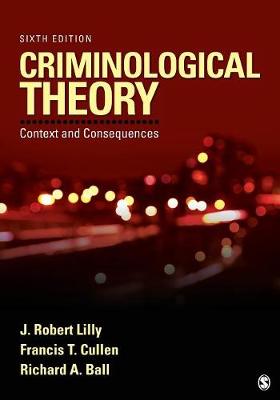Studies in Crime, Law, and Criminal Justice
2 total works
Criminological Theory
by J. Robert Lilly, Francis T. Cullen, and Richard A. Ball
Published 21 July 1989
Offering a rich introduction to how scholars analyze crime, Criminological Theory: Context and Consequences moves readers beyond a commonsense knowledge of crime to a deeper understanding of the importance of theory in shaping crime control policies. The Sixth Edition of the authors’ clear, accessible, and thoroughly revised text covers traditional and contemporary theory within a larger sociological and historical context. It includes new sources that assess the empirical status of the major theories, as well as updated coverage of crime control policies and their connection to criminological theory.
House Arrest and Correctional Policy
by Richard A. Ball, C. Ronald Huff, and J. Robert Lilly
Published 25 April 1988
Prison overcrowding has led criminal justice experts to seek viable options to incarceration. House Arrest and Correctional Policy considers one of these new approaches and raises important legislative and constitutional questions as well as social and psychological issues. The authors discuss both the advantages and disadvantages of house arrest, consider several specific programmes, evaluate research undertaken in various states and outline their own research.

